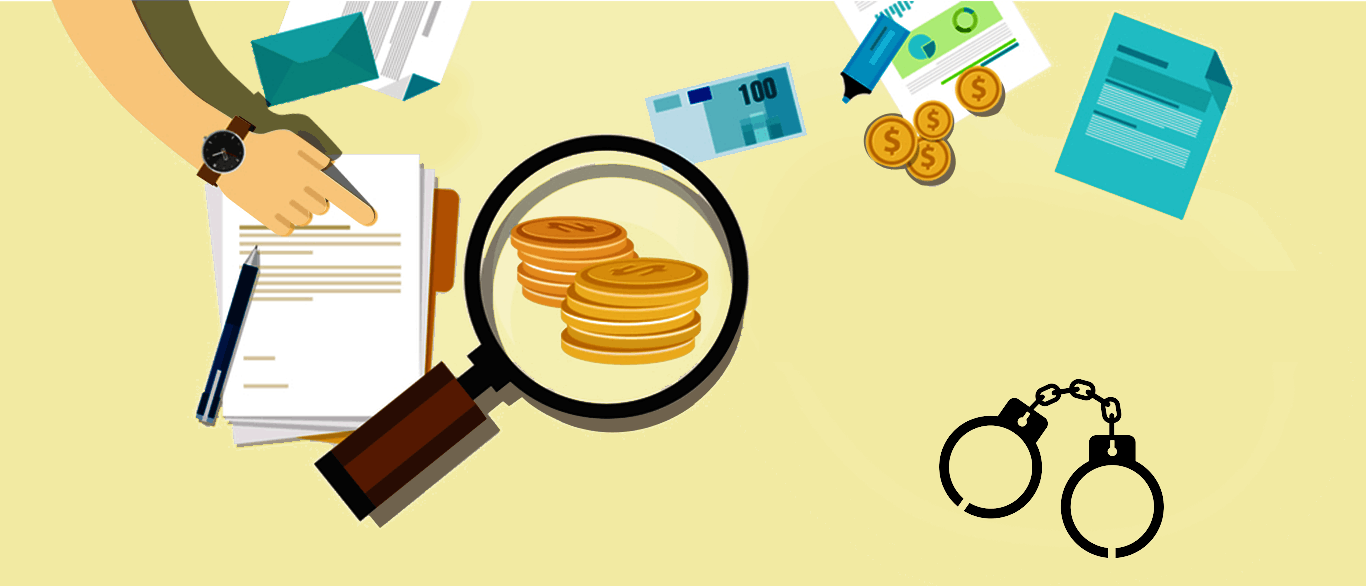
You can find crooks everywhere, and you never know when your small business may come in contact with anyone who’s trying to launder money. To avoid falling into the trap of money laundering use small businesses accounting services.
In this blog, we’ll help you know about money laundering, the US law relating to money laundering, and what you need to do as a business person to ensure you don’t fall under money laundering regulation.
 |

What’s Money Laundering?Money laundering is transaction and activities used for hiring real source of money. In several cases, illegal enterprises attempt to make dirty money from illegal activities such as drug deal, etc, look clean and legitimate. This way the money is laundered. Now, for big or small businesses, money laundering is a big problem. Often business owners fall into its trap without even knowing. |
How Does Money Laundering Take Place?
The concept of money laundering is to get cash into financial systems without actually revealing its source.
For instance, someone has cash from any illegal deal. The person attempts to pay with that cash so the cash enters the financial system without revealing where it came from.
How money gets laundered operates into three stages:
- First stage is the placement stage. Dirty money is introduced in the financial system in small deposits.
- Second stage is the layering. The money is dispersed or distributed.
- Third stage is integration. The money is reintroduced into the business, and is used to buy large items including businesses, buildings and more.
Hire small business accounting services to know about money laundering.

Schedule A Consultation Today!
What Laws To Know About Money Laundering?
Two US Laws are based on attempts to curb money laundering activities. The Bank Secrecy Act of 1970 included several requirements for financial institutions and banks to report some types of transactions, and bigger cash transactions.
In 1986, Congress passed the Money Laundering Act making money laundering specific federal crime. It stops particular criminal acts related to financial transactions attempting to hide where funds really come from, who owns those funds, and who controls those.
The right small business accounting services firm knows more about these laws and can guide you.
The law may prosecute violations with no minimum amount for transaction. Several new laws have been enacted to banks with strict regulations and requirements for identifying bank customers.
Why Do You Need To Comply With Anti Money Laundering Laws?
Even if your small business isn’t a bank, you may be the victim of money laundering schemes. If your business has had large transactions, or if you do enough business in cash, you must be aware of where the money is coming from to your small business.
The principle, in terms of banking industry, is known as Know Your Customer. Particularly, federal law requires reporting large cash transactions over $10,000 to the IRS.
There is a specific form you’ll need for using to report the transactions, the form is Form 8300. Note these are actually cash transactions that are untraceable through financial systems. Consult with small business accounting services firm to know more.

Schedule A Consultation Today!
What Laws To Know About Money Laundering?
Two US Laws are based on attempts to curb money laundering activities. The Bank Secrecy Act of 1970 included several requirements for financial institutions and banks to report some types of transactions, and bigger cash transactions.
In 1986, Congress passed the Money Laundering Act making money laundering specific federal crime. It stops particular criminal acts related to financial transactions attempting to hide where funds really come from, who owns those funds, and who controls those.
The right small business accounting services firm knows more about these laws and can guide you.
The law may prosecute violations with no minimum amount for transaction. Several new laws have been enacted to banks with strict regulations and requirements for identifying bank customers.
Why Do You Need To Comply With Anti Money Laundering Laws?
Even if your small business isn’t a bank, you may be the victim of money laundering schemes. If your business has had large transactions, or if you do enough business in cash, you must be aware of where the money is coming from to your small business.
The principle, in terms of banking industry, is known as Know Your Customer. Particularly, federal law requires reporting large cash transactions over $10,000 to the IRS.
There is a specific form you’ll need for using to report the transactions, the form is Form 8300. Note these are actually cash transactions that are untraceable through financial systems. Consult with small business accounting services firm to know more.
How To Stop Money Laundering From Affecting Businesses?
Be Careful Of Warning Signs
The warning signs that we share in this blog isn’t conclusive. Criminals use dark web to launder money and their methods are creative.
Trust your gut instinct- if the transaction appears to be really true, then it is ideal to walk away!
Ask Questions When Needed
Criminals don’t like answering questions- the more questions you ask, the more agitated they may become.
If they get really impatient and rush you to complete transactions fast, it is best you don’t proceed any more.
Finally, make sure you don’t fall into the trap of money laundering. Be careful whom you work with and be careful always.
Contact Us Today:
Locations:





